Turks and Caicos Safety & Crime Information
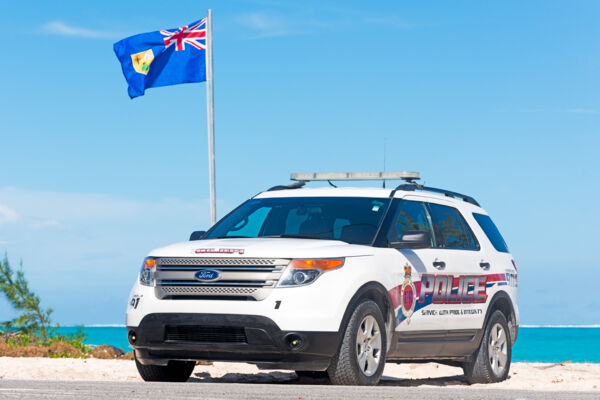
For the typical tourist , the Turks and Caicos is one of the safest countries in the broader tropical Atlantic and Caribbean region. However, crime does take place, and there are many considerations that visitors should be aware of. If certain practices and areas are avoided, tourists can significantly reduce their risk of being a crime or accident victim.
The Caribbean, Central America, and South American regions have high, and in many cases, extremely high crime rate as compared to the North American, European, and Asian regions.
Most crime in the Turks and Caicos occurs among residents. The Turks and Caicos is a small country, and in the case of robberies and home invasions, such crimes often occur in ‘waves’, where one or a group of perpetrators commit several crimes over the span of a few days or weeks until they are apprehended, after which conditions return to a somewhat peaceful norm.
Travel Insurance
Visitors to the Turks and Caicos should obtain travel insurance. Most travel insurance policies combine several benefits, including medical evacuation, property loss, and cancellation insurance.
Islands in the Turks and Caicos
It’s important to understand that the Turks and Caicos has several inhabited islands. Nearly all overnight guests stay on Providenciales, which has much of the population and development. The vast majority of crime occurs in Providenciales.
Crime does occur on the other islands in the Turks and Caicos, primarily opportunistic theft from unoccupied accommodations and vehicles. This is somewhat common on Grand Turk, and quite uncommon yet still present on North Caicos and Middle Caicos.
Crime
Police
Being a British Overseas Territory, the management of the police is the responsibility of the United Kingdom government. The Commissioner of Police and senior officials are appointed by the Governor, who is the representative of HM King Charles III.
Armed Robberies
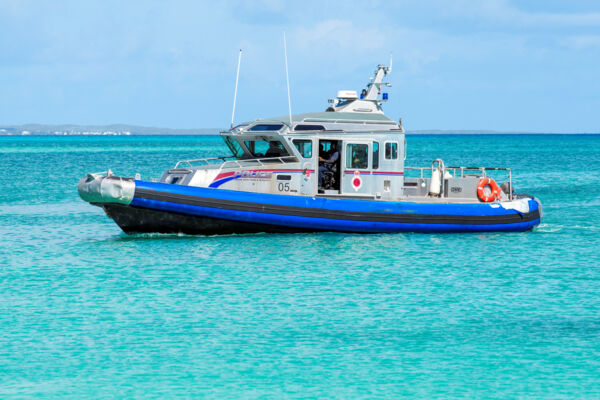
Muggings and armed robberies, where victims are confronted by one or more armed criminals, are somewhat common in the Turks and Caicos. Often the robberies are opportunistic crimes, yet victims may be targeted if they are thought to be carrying large amounts of cash or jewelry, or are easy targets.
On Providenciales, the majority of businesses that cater to tourists accept credit card or debit card payments, so carrying large amounts of cash is less important now than it was in the past. The notable exception are taxis, which often do not accept cards.
Don’t use ATMs at night.
Theft
Theft from unoccupied homes, vehicles, and personal items left on beaches does occur. Don’t leave valuables unattended.
Most hotels and villas on Providenciales have safes or residential security containers. It’s advisable to secure valuables and lock all doors and windows when accommodations are not occupied.
Vehicles in somewhat quiet or isolated locations may be broken into. Whenever possible, don’t leave items of value unattended, and don’t leave bags or items in open sight through windows.
Home Invasions
Invasions of occupied homes and villas occur in the Turks and Caicos, primarily on the island of Providenciales. The Royal Turks and Caicos Islands Police Force generally does not release crime statistics, so it’s hard to quantify risk. An estimate is that 0-10 home invasions involving visitors occur each year, where occupants are confronted by armed intruders and robbed of their belongings.
It’s advisable to ensure that all windows and doors are locked at night when staying in a villa. Modern luxury villas in the Turks and Caicos typically have high-quality windows and doors, which are quite resistant to entry when secured. Ensure the identity of callers at night before opening the door.
Walking at Night
Generally, it’s not advisable to walk at night, especially outside of the central Grace Bay area. Areas such as the Bight and further reaches of the Grace Bay area have increased risk over the main ‘Grace Bay Strip’.
Remote Areas
Remote and isolated areas in the Turks and Caicos may have an increased risk of crime, including armed robberies. Such areas include West Harbour Bluff, Malcolm Roads Beach, Bonefish Point, and Northwest Point. Crimes in these areas are not significantly common, yet when considering the limited number of visits the areas get, the proportional risk is high.
Driving and Transportation
Road Safety
The Turks and Caicos Islands and especially the island of Providenciales have a very poor road safety record. General driving practices of residents are remarkably poor, and traffic enforcement is practically non-existent. Visitors that will be driving should consult Driving in the Turks and Caicos for more information, and should have a very cautious driving practice. Don’t pick up hitchhikers.
Public Transport and Taxis
The Turks and Caicos does not have any public transport. Most visitors are best served by renting a car for the duration of their stay, as taxis can be quite expensive. If taxis are used, the total fare for all passengers should be agreed upon before entering the taxi. Many taxis only accept cash payments.
Luxury car services, which almost exclusively operate luxury-class SUVs, have become very popular for transportation. Due to their pricing schedule, they can often be competitively priced when compared to taxis when there are three or more passengers.
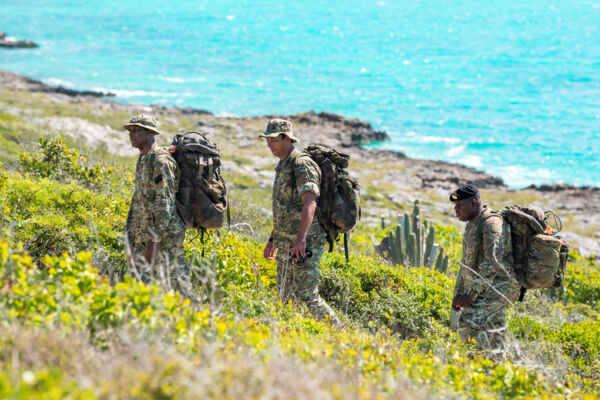
Unlicensed Taxis and Jitneys
A large number of unlicensed ‘jitney’ taxis operate on Providenciales. Don’t use unlicensed jitneys. Jitneys have been linked to crimes against persons, and some drivers demand greatly inflated rates from persons they deem to be visitors.
Scooters and Cycling
Road conditions and driving practices are generally poor and dangerous in the Turks and Caicos, especially on the island of Providenciales. It’s not advisable to operate scooters or bicycles on roads, especially outside of the Grace Bay area.
Controlled Substances and Nightlife
Spiked Drinks
There have been reports of spiked drinks in the Turks and Caicos. Don’t accept food or drinks from strangers, and don’t leave food or drinks unattended.
Bringing Controlled Substances in the Turks and Caicos
Don’t bring controlled substances into the Turks and Caicos.
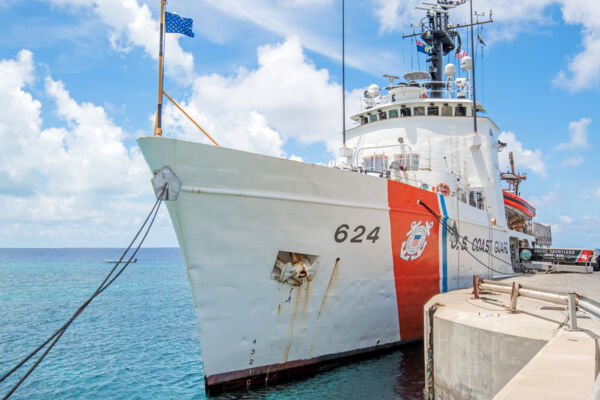
Cannabis is a Class A controlled substance, and it is illegal to import cannabis (marijuana) in any form. This includes products containing its derivatives, including anything containing CBD or THC.
There is no exemption for medical marijuana products. Persons who attempt to import drugs, including cannabis and marijuana, may be subject to a 5-year sentence and a fine of up to $75,000. Dogs are used at the airport and there is random inspection of luggage. There is the ability at the airport to conduct tests on items for controlled substances.
Don’t Purchase or Use Controlled Substances
Locations where illicit substances are sold or used often have an increased risk of crime, including crimes of violence. There have been cases of tourists being robbed and shot whilst purchasing drugs.
Risky Establishments and Nightlife
The Turks and Caicos is not a destination that has a vibrant nightlife scene. Most restaurants close at 10:00 PM and most bars close at 11:00 PM. Establishments that operate late into the night and early morning hours have a greatly increased risk of crime, altercations, and physical violence, especially at locations outside of the Grace Bay area.
Embassies and Consulates
There are no embassies or consular services for the United States or Canada in the Turks and Caicos. Nationals of the United States seeking consular assistance will have to contact their embassy in Nassau, Bahamas. Nationals of Canada will have to contact their embassy in Kingston, Jamaica.
Water Sports and Activities
Unlicensed and Uninsured Operators
If you hire the services of a boat charter, water sports, or jet ski company, ensure that they are licensed and insured. The Turks and Caicos has laws and regulations that stipulate the practices and requirements of local water sports and boat charter businesses.
However, some operators do not operate legally, and may not be safe. In the event of an accident, injured persons and customers may not have any legal recourse or reasonable expectation of compensation.
A best practice when selecting charter and water sports companies is to reference established information sources. Companies that rely on referrals and soliciting their customers off the beach may not be licensed and insured.
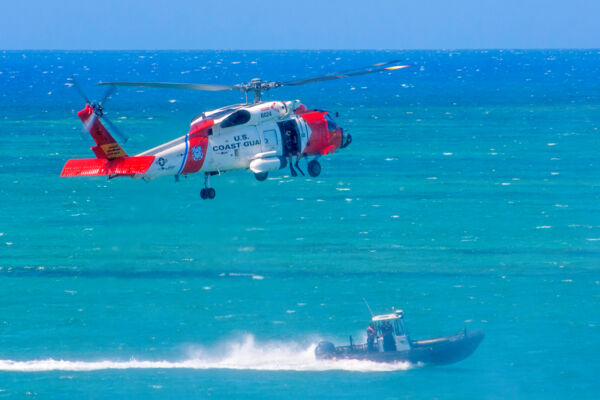
Reckless Boat Operators
When swimming or snorkeling in the water, it’s important to consider the risk posed by boats. Vessels are often used in a reckless manner in the Turks and Caicos. At some locations, boats are routinely operated close to shore, particularly including at the Bight Reef (also known as Coral Gardens), the Bight Beach, Grace Bay Beach, Sapodilla Bay Beach, and Taylor Bay Beach. There is unfortunately very little enforcement or recourse against such operators.
Cliff Jumping and Hazards
A somewhat common activity and challenge on excursions is cliff jumping or jumping off the La Famille Express shipwreck. Don’t jump from high heights, which certainly includes heights over 20 feet (6 m). Such heights often cause minor injuries such as bruising, yet more serious injuries are possible. Persons have received serious spinal injuries from jumping from the Split Rock cliff at West Harbour Bluff, which has a height of about 32 feet (10 m). Additionally, simply climbing the obstacle to jump off of can be dangerous, as is the case with the decaying La Famille Express.
Rescue services on the water or in remote areas are very limited in the Turks and Caicos. When accidents have occurred on the water, in most cases passing vessels in the area have to transport the casualty to a dock or marina, where emergency services can make the collection.
The Turks and Caicos does have a close working relationship with the US Coast Guard, which often operates a Sikorsky MH-60 Jayhawk helicopter in the islands, and has assisted with search and rescue operations in the past. However, their presence is not continuous in the Turks and Caicos, and their assistance is not guaranteed.
Reckless Jet Ski Users
Reckless jet ski and personal watercraft use may take place in the Turks and Caicos, especially near locations such as Sapodilla Bay, Long Bay Beach, the Noah’s Ark floating bar, and Half Moon Bay lagoon. Great care should be taken when swimming in the water near these locations, especially in the later hours of the afternoon, when some vessel operators may become impaired by alcohol and drug use.
Health and Environmental Risks
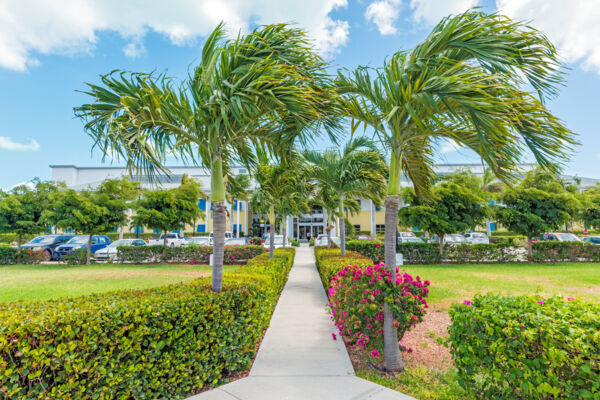
The Turks and Caicos does not have many endemic disease risks. Providenciales has the Cheshire Hall Medical Center, which is the primary hospital in the country. Grand Turk has a small hospital. The other main inhabited islands only have small clinics, which may not always be open.
The medical services in the Turks and Caicos are limited. In many serious situations, patients are medevacked out of the Turks and Caicos via air ambulance for treatment at other hospitals in the region. It’s advisable to have travel insurance that covers such events, as they can be very costly.
Drinking the Water
Indoor-plumbed water in the country is almost always either desalinated ‘city water’, or is collected rainwater from cisterns. Hotels on Providenciales almost exclusively use piped ‘city water’, which is reverse osmosis desalinated water from the utility network. ‘City water’ may sometimes have a poor taste, yet is safe to drink.
As may be expected, water from cisterns will vary according to contaminates, cistern age, and many other issues. Illness induced by consuming water from cisterns is very uncommon, yet is not unheard of. Many homes and villas on Providenciales use ‘city water’, but not all. Cistern water is typical on the other islands in the country.
Dog Attacks
The main inhabited islands in the Turks and Caicos have feral dogs. It is uncommon, yet feral and domestic dog attacks on persons do happen. Avoid packs of feral dogs and aggressive pets. Rabies has not been identified in the Turks and Caicos, yet the risk always exists as bats are present in the islands. It’s not uncommon for small pets to be attacked by dogs.
Drownings
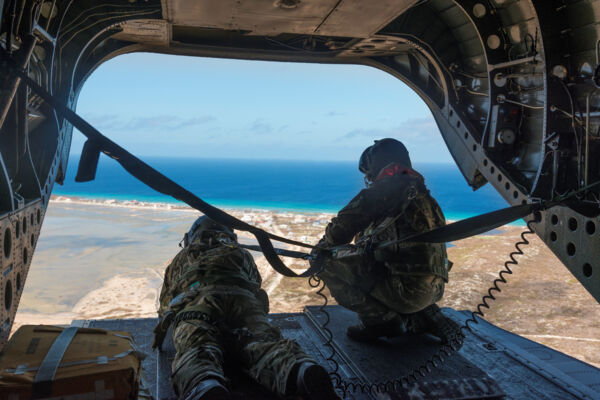
One of the greatest causes of visitor deaths in the Turks and Caicos is drowning. Many drowning deaths have occurred at the Bight Reef (Coral Gardens), likely due to exhaustion or cardiovascular conditions.
Always snorkel with a buddy, and consider using a snorkeling vest or flotation aid.
Full-face snorkel masks have been linked to deaths in other regions. Consider avoiding them.
If you get caught in a current, don’t panic. At the beach snorkeling sites on Providenciales, the current almost always travels parallel with the beach. Often, it’s a mistake to directly fight the current. It’s often far easier to swim perpendicular or somewhat with the current and land on the coast a distance down the beach from your starting point.
Don’t wade far off the beach. Some coasts have small cays, sandbars, or wrecks off the beach, and they are often far further out than they may initially appear. Also, incoming tides, currents, and wind direction can make return journeys difficult.
Dehydration and Sunburn
The sun is typically quite intense in the Turks and Caicos. Dehydration, sunstroke, heat exhaustion, and serious sunburn are comparatively common conditions with visitors. Please take precautions.
Flora and Fauna
The Turks and Caicos has very few plant and animal dangers. One of the most common flora or fauna induced complaints are rashes caused by either thimble jellyfish or the coral sumac tree. In both cases, rashes are typically resolved without intervention.
Thimble jellyfish are uncommon, yet occasionally appear off some beaches. If you see very small greenish jellyfish, it’s advisable to choose another beach.
The coral sumac (Metopium toxiferum) is a small tree or shrub that can be very common in coastal locations in the Turks and Caicos. Don’t contact the tree or its leaves.
Hurricanes
The Turks and Caicos is located in the tropical Atlantic, and is thus may be impacted by a tropical depression, tropical storm, or hurricane. The Atlantic Hurricane Season is from June to November.
In recent decades, the Turks and Caicos has responded to and recovered well from hurricane strikes. Much of the development in the country is modern and is resistant to wind damage. Prior to storm strikes, airlines often provide additional flights for those wanting to evacuate. However, such flights are not guaranteed.
